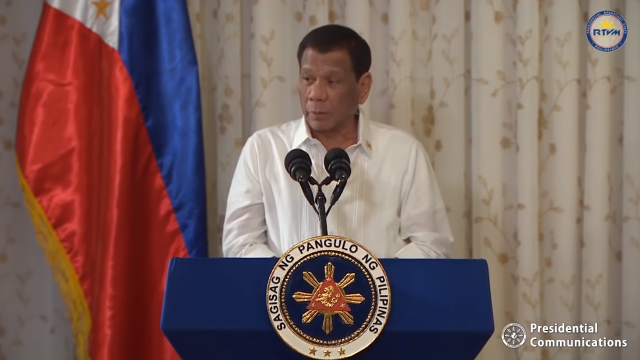Not newsworthy: Duterte’s slur against Rappler journalists

THREE YEARS into his term, President Rodrigo Duterte’s tirades against his critics and the independent press have become predictable and pointless. They don’t contribute to public understanding of the issues, and often discourage citizen engagement in public discourse or derails from more rational policy discussions. Calling people and various groups names and insulting them hardly qualifies as reasoned argument.
It certainly does not help that the media continue to quote whatever he has to say, no matter how absurd or pointless, in their uncritical observance of the principle that anything the prominent and powerful say deserves newspaper space and broadcast time.
CMFR jeers GMA News Online for its report on the president’s recent tirade against online news site Rappler, which, as everyone, and certainly the media, know by now, is the favorite target of Mr. Duterte’s abuse.
Reporting on the president’s speeches in two separate events on September 10, GMA News Online posted “Duterte slams Rappler, says its journalists have body odor, but vows to uphold press freedom” on September 11.
At the oath-taking of the league of Vice Governors of the Philippines at the palace, the president attacked Rappler journalists, saying they have body odor and that he is left with no other recourse but to go after them. He said the online news site played up the accusation of Peter Joemel Advincula (“Bikoy”) in a series of videos linking the Duterte family to the illegal drug trade. Later in the day, during the oath-taking of new officers of the Malacañang Press Corps, Malacañang Cameraman Association and Presidential Photojournalists Association, the president said he would uphold press freedom.
If GMA News Online wanted to demonstrate how the president contradicted himself in his two speeches on the same day, it could have done so without paying attention to his utterly unpresidential attack on the persons of the Rappler staff.
This has been going on too long, the repetition of the president’s insults and foul language. The media must seriously re-examine their adherence to the conventions of journalism as a first principle. It isn’t just because not everything prominent and powerful people say is worth the time and space of reporting. It is also a matter of knowing what news is worth reporting. It reflects on the commitment of a news organization to the ethical and professional standards of journalism – a public service designed to inform citizens so they can engage in the public conversation in a meaningful way.
Repeating the personal slur against colleagues in the media just because it came from the president is about as cheap as one can get in the practice. Such lack of discernment ends up insulting the public that deserves much better.
Leave a Reply